Bond LSC Research
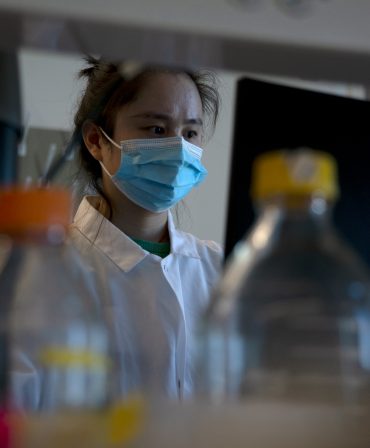
Feb. 17, 2022
Pancreatic tumor composition provides insight on treatment response
Jing Zhou focuses the microscope through her computer. The microscope feeds its view directly to her screen so Zhou can see the pancreatic cells. | Photo by Cara Penquite, Bond LSC By Cara Penquite | Bond LSC Not all tumors are created equal, and potential treatments aren’t universal. When it comes to pancreatic cancer, surgery and radiation often do more harm than good due to its rapid growth and ability to spread to the liver. Searching for alternative treatment options, Jing Zhou focused her research on immunotherapies. That led Zhou and her team to identify the sequences…
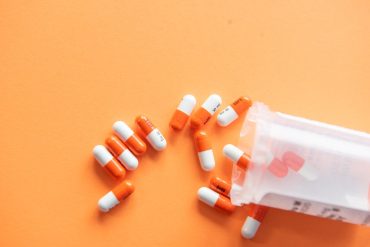
Feb. 9, 2022
Old Drugs, New Application: Artificial Intelligence Aid Future Breast Cancer Treatment
Photo by Christina Victoria Craft on Unsplash By Karly Balslew | Bond LSC New drug treatments take time and money to develop, especially with diseases as complicated as cancer. Developing a new drug to help cancer patients can take up to fifteen years and can cost roughly $1.6 billion, according to a paper published in the journal Cancers. With this in mind, researchers at the University of Missouri aim to capitalize on drugs that already exist. Using advanced computing, they are turning to FDA-approved drugs to repurpose, or reposition, for future cancer treatments. “The motivation…
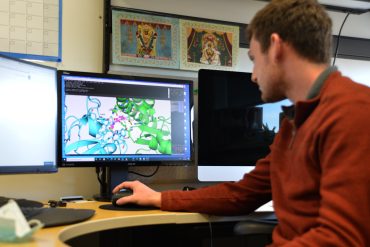
Feb. 2, 2022
Outlining Omicron: researchers determine key mutations in the latest COVID-19 variant
Bond LSC and UNMC scientists explain mutations unique to the Omicron variant Austin Spratt, undergraduate mathematics student in the Kamlendra Singh lab, shows protein models of the Omicron spike protein and the receptor it attaches to when infecting cells. “The genetic codes are used to identify the mutations, and then we use the structure to see how it would change over time. It’s going to give us more information about new mutations that occur,” Spratt said. | Photo by Cara Penquite, Bond LSC By Cara Penquite | Bond LSC It took eight days for…
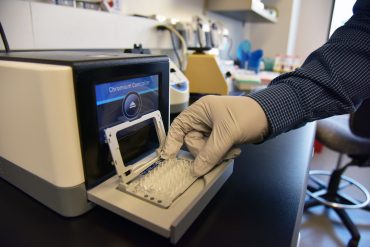
Dec. 20, 2021
New method leads to discovery of placental cell type
Nathan Bivens, director of the Genomics Technology Core at Bond Life Sciences Center, loads the Chromium 10X Genomics machine as part of the single-cell RNA sequence method. | photo by Lauren Hines, Bond LSC By Lauren Hines | Bond LSC During pregnancy, the fetus and mother can talk to each other without saying a word. On a deeper level, a special cell called the syncytiotrophoblast facilitates this conversation by changing the mother’s physiology based on what the fetus does or does not need. The Michael Roberts lab at Bond Life Sciences Center knew there had to…
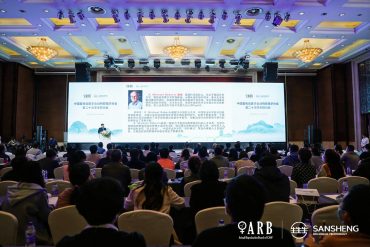
Dec. 8, 2021
Bond LSC Researcher Wins Awards for 45-Year Career in Reproductive Biology
Even though Roberts couldn’t accept the award in person, the Chinese Association of Animal Science and Veterinary Medicine still held an award ceremony and presented the medal to one of Roberts’ past associates. | photo contributed by Michael Roberts, Bond LSC. By Lauren Hines | Bond LSC Still in the lab after 45 years, chancellor’s professor emeritus Michael Roberts has received recognition for his career in reproductive biology research. Roberts won the Marshall Medal from the UK Society for Reproduction and Fertility (SRF) in August and the Gold Medal and Honorable Membership of the Animal…
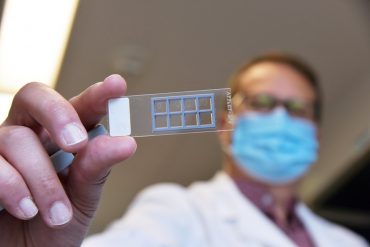
Nov. 10, 2021
Technique connects DNA instructions to biological architecture in space: Core collaboration maps the future
Nathan Bivens, director of the Genomics Technology Core at Bond Life Sciences Center, holds a special slide that assigns barcodes to expressed genes on different places on the tissue. This helps Bivens know where certain gene expressions came from on the tissue. | photo by Lauren Hines, Bond LSC By Lauren Hines | Bond LSC The brain is a unique challenge. It has billions of cells with billions of different functions, making it hard to understand what is going on underneath. MU cores now offer 10X Genomics Visium technology which allows researchers to lay genetic data…
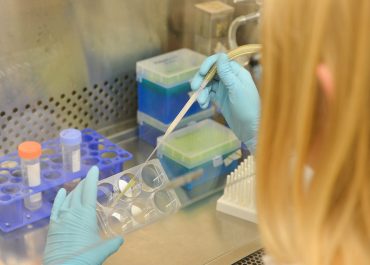
Oct. 13, 2021
Turning Back the Clock
Megan Sheridan, a postdoctoral fellow working with the R. Michael Roberts lab, removes the base solution from a demonstrated sample of stem cells that will be grown into placental cells for study of their interaction with the Zika virus. | photo by Phillip Sitter, Bond LSC By Lauren Hines | Bond LSC At 24 weeks pregnant, a baby can hear the mother’s lullabies. At 30 weeks, her belly is a little over a foot large. At 40, the hospital bag is already packed and ready to go. But imagine delivering only two weeks…
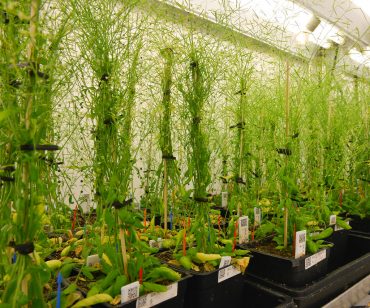
Sep. 20, 2021
Finding a new direction to better corn nutrition
Arabidopsis plants line the shelves of a basement room in Bond LSC. The new biofortification direction the Angelovici lab found in maize seems to also be present in arabidopsis plants. | photo by Phillip Sitter, Bond LSC By Lauren Hines | Bond LSC Whether it’s through kernels, cereal or chips, corn pops up everywhere in our diet, providing nutrition to countless people all over the world. But that nourishment isn’t enough to be satisfied, especially when a staple so widespread still lacks some building blocks key to balanced nutrition. Researchers have tried different reverse genetics approaches…
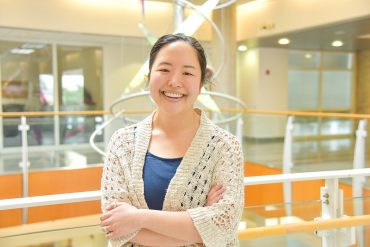
Aug. 5, 2021
Two SARS-CoV-2 strains cause independent infections only 19 days apart
Increasing detection of reinfections and rediscovering brand new infections within days raises concerns for herd immunity and the durability of vaccine efficacy. Cynthia Tang working to figure out how COVID-19 reinfections can bring us answers on how the virus is developing at Bond LSC. | photo by Davis Suppes, Bond LSC By Davis Suppes | Bond LSC Like many viruses, SARS-CoV-2 continues to develop and evolve with time. As the virus evolves it can become more infectious, produce worse symptoms, and have a higher fatality rate. While people receive more treatment for…

July 23, 2021
Bringing Protection Back in Line
Research refines platform to address immune disorders Dr. Esma Yolcu and Dr. Haval Shirwan, Co-pioneers of ProtEx technology By Davis Suppes | Bond LSC The things that protect you can also cause the most harm. That’s especially true when it comes to your immune system, which protects you against infections, but is also responsible for a host of diseases, including autoimmune disorders, such as type 1 diabetes. More than 1.4 million Americans suffer from the self-harming condition of diabetes without an effective cure, but researchers Haval Shirwan and Esma Yolcu may have the…
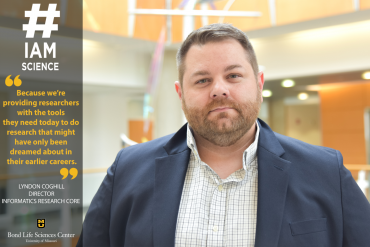
June 24, 2021
#IAmScience Lyndon Coghill
Lyndon Coghill is the new Director of Informatics Research Core, and he is already making big moves at Mizzou. Lyndon Coghill, Director of Informatics Research Core, stands near his office on June 22 at Bond LSC. | photo by Davis Suppes, Bond LSC By Davis Suppes | Bond LSC Lyndon Coghill’s official title may be Director of Informatics for the Informatics Research Core, but his job branches out much wider than just a single label. Even as an undergrad, Coghill wore many different hats. “I was incredibly excited about the way that the MU Office of…
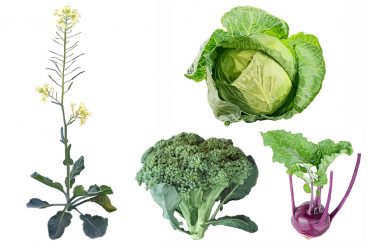
June 22, 2021
A feral past may help chart the future for Brassica vegetables
Although Brassica cretica doesn’t look much like cabbage, broccoli or kohlrabi, the wild relative is the closest relation to our modern vegetables and its endurance might show us how to make our vegetable crops more resilient in the future. | Illustration courtesy of Andi Kur By Roger Meissen | Bond LSC You might not envision plant scientists as the modern-day Indiana Jones of biology, but University of Missouri researchers have been hot on the hunt for an evolutionary history, looking for clues to the ancestors of our gardens and grocery shelves. To find the closest wild…